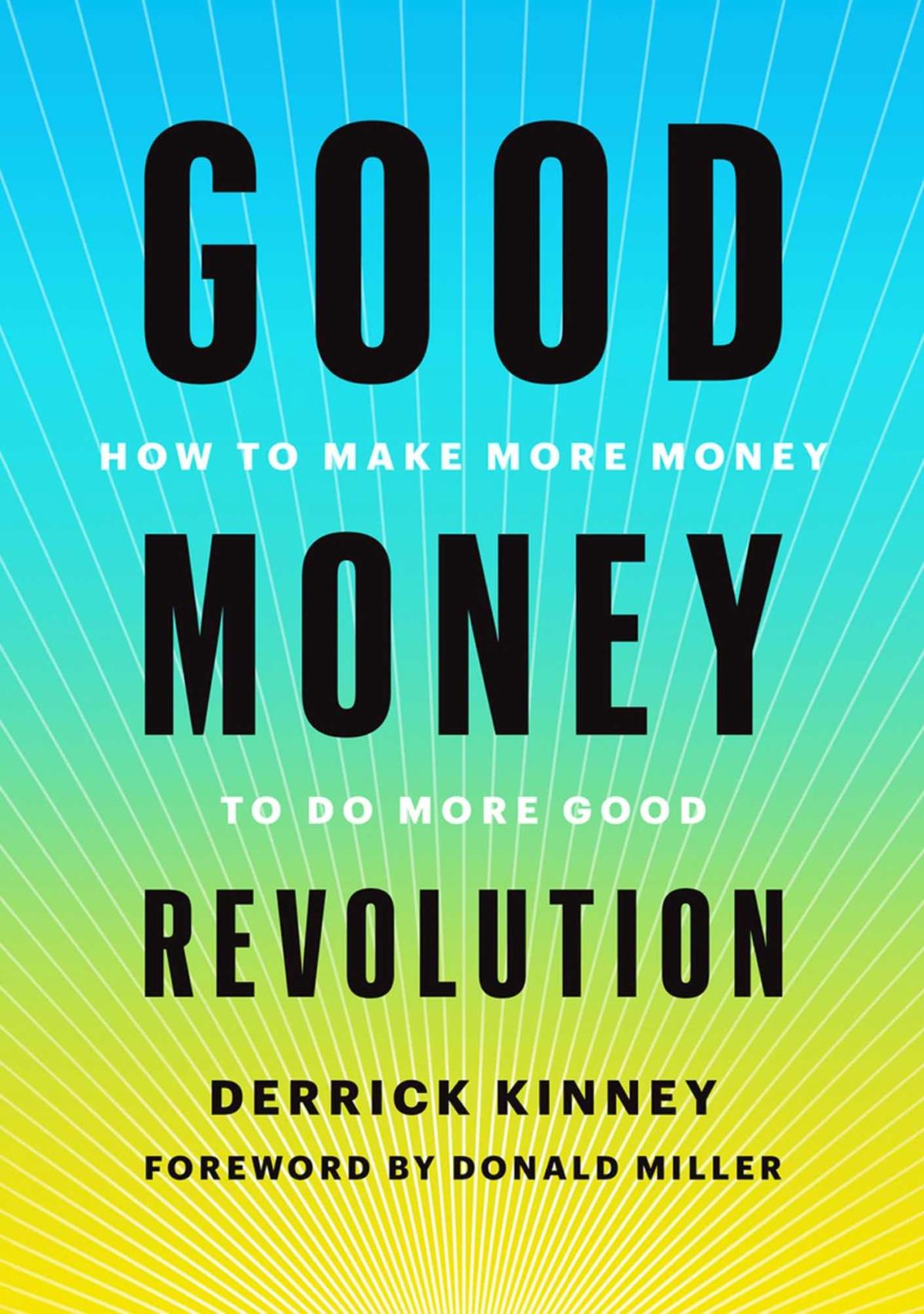My voicemail light was blinking. Catching up at the office on a Saturday morning, I pressed “play” and heard a woman’s frantic voice. It was Nancie, one of my clients. She said she had bounced a check and was worried it would ruin her credit—and might even get her hauled off to jail. By the end of her message, Nancie seemed to be convinced that she would spend the rest of her life in prison.
I quickly called her back. She was startled to hear my voice. Nancie said she hadn’t known whom to call, so she called me, her investment advisor. She told me she had moved money from her savings to her checking account to cover some big purchases. She assumed all was fine until she received a non-sufficient funds notice in the mail, and it had really freaked her out.
I calmed her, assuring her that she had more than enough money to cover the check and that we would call the bank together on Monday morning to move the money to the proper place. Once I assured Nancie that she would not be swapping her home for a jail cell, she was relieved. But I was curious. Bouncing a check is irritating, but how did it get elevated in her mind to such a life- changing event? So I asked her. She said she had grown up poor. As
a child, she witnessed her father receiving a call for accidentally bouncing a check written to a local store to purchase school supplies for her. The store manager had threatened to call the police. While her dad was shaken, he quickly corrected the oversight. The problem was solved, but what she saw was cemented in her mind: bounce a check, go to jail. This was a successful fifty-seven-year-old woman and in an instant, she flashed back forty-eight years. By the end of the call, she was calm and thankful, yet it showed us both how her past money beliefs still caused her to react today.
Another story—this one about two friends (we’ll call them John and Greg) who no longer speak to each other. John grew up in rural Iowa in a family of farmers. John and Greg were childhood friends and did everything together. Later in life, Greg had an entrepreneurial idea that grew into a successful business. John could not understand how his friend could have become so financially successful. Greg wasn’t even fabulously wealthy, but John couldn’t get it out of his head that Greg had more money than he did. Inexplicably, John began to believe Greg must have done something illegal to make so much money, and his accusations severed their relationship. Because of the deeply rooted money beliefs John grew up with, he couldn’t accept that Greg could have become so much more financially successful than he was. John’s money mindset held him back—and ruined a thirty-year friendship.
In both stories, Nancie and John’s money mindsets had unintended consequences. I never want you to feel the panic and anxiety Nancie felt that Saturday morning or the jealousy and resentment John felt toward Greg. Negative feelings toward money and those who have it will sabotage your personal success and hold you back.

Stories like these are all too common—and it’s just not right. Now let’s dive a little deeper and investigate five different beliefs about money that could be holding you back.
1. Money represents scarcity and strain.
Because you grew up in a family that didn’t have as much money as some, your parents villainized money rather than teaching you how to make it. You heard frequent arguments about not having enough. The blame, frustration, and accusations over who was spending too much caused anger and conflict. If you knew a family member or friend who lost a job or was facing a significant financial hardship, you might have seen the damage it did to their family and you began to associate pain with a lack of money. You were raised to believe that since your family didn’t have money, it would always be a struggle and there would never be enough. Money represented scarcity and strain.
2. You see money as working against you.
You believe the daily grind of a job you don’t like is the only way to make ends meet. You work hard for every dollar you earn. At the end of the day, money is simply a revolving door that never stops. The bills keep coming and there is always something more to pay for. It comes in and goes right back out and you have nothing to show for it. You have to keep working harder and longer to try to earn more.
It feels like you never stop working but your money isn’t working for you. You think, I don’t understand how I can make more money. I have a nine-to-five job. I work, I come home, I pay the bills. I’m never truly getting ahead; I’m just treading water. The cycle seems like it will never end.
3. Your family’s money tree did not grow.
Growing up, you heard it said at the dinner table that in life, there are the “haves” and the “have-nots.” You are who you are and no matter
how hard you work, you won’t get to enjoy the life that wealthy people have. Your entire life you’ve seen your grandparents and parents struggle financially. From one generation to the next, the same message gets passed down: that’s just the way it is and don’t expect it to change. The rich get richer, and the rest of us keep working harder.
You believe money is for other people. You see other people have it, you don’t, and that’s the way it is. Even if you had money, you worry what others would think of you and that you might become someone they don’t like. You will be criticized for how you spend your money and feel pressured to live like others expect. It would be better not to try at all than to fail and be despised by your peers.
4. There’s not enough money to fulfill your dreams.
You’re stuck in your job so you can pay your bills. Sure, you’ve dreamed of owning your own business or doing something you really love. But where would the money come from? Who can really quit their job to pursue a dream and still pay the bills? People who must have a wealthy parent. You don’t have that luxury. Plus, you don’t know how to manage money and fear you will look foolish making bad decisions, or even worse, losing it all. You feel overwhelmed by financial-speak and are frustrated that you can’t find a simple plan you understand. You are concerned you will spend it all and have nothing to show for it. Dreams die. Work goes on.
5. The money math doesn’t add up.
Deep inside, there are causes you feel passionate about that you would love to support, but you believe only wealthy people can make a real difference. You know your money math, and giving
some away doesn’t add up. Plus, you don’t feel in control of your money and worry if you will have enough to do the things you want to do. You are concerned about being taken advantage of and that the recipient of your giving will not work as hard with your money as you worked to earn it. Besides, if you did give your money away, people would only start asking for more. Let’s be real. Can your money really change the world?
Spoiler alert: Yes, it absolutely can.
For years I watched many clients progress from the belief that money was bad to making it, investing it, and giving away more than they ever dreamed possible. But first they had to recognize and overcome their deeply ingrained negative money beliefs.
As you read through these five beliefs, you probably replayed some painful memories from your childhood (or even adulthood). It may have felt uncomfortable and challenging to take in—but you did it anyway. I applaud you for confronting these beliefs.
I have good news for you: change starts now. But changing your money mindset isn’t a one-time fight. It’s a continuous battle to combat beliefs that have been deeply ingrained in you from a young age.
Your job is to flip your money script. I’m about to show you how.
(To be continued...)

This excerpt is taken from “Good Money Revolution: How to Make More Money to Do More Good” by Derrick Kinney. To read other articles of this book, click here. To buy this book, click here.
The Epoch Times copyright © 2023. The views and opinions expressed are those of the authors. They are meant for general informational purposes only and should not be construed or interpreted as a recommendation or solicitation. The Epoch Times does not provide investment, tax, legal, financial planning, estate planning, or any other personal finance advice. The Epoch Times holds no liability for the accuracy or timeliness of the information provided.








